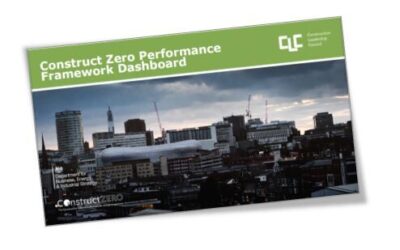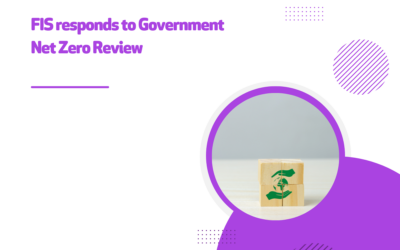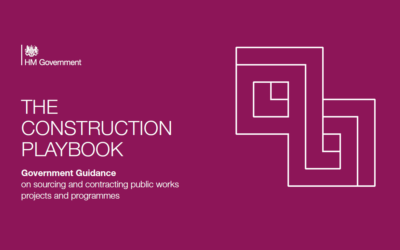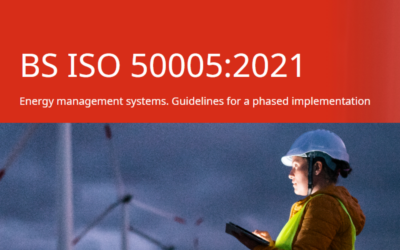Sustainability in the Finishes and Interiors Sector
FIS is committed to taking a pro-active lead, not just in supporting the UK ambition to net zero carbon by 2050, but delivering profound transformation within our supply chain on all aspects of ethical and environmental sustainability.
In this toolkit we look at some of the key actions that you can take and also some of the wider sector initiatives that can support your business in setting a sustainability strategy. The aim is to support companies in meeting the ethical and environmental aspects of sustainability considered from the three dimension of planet, people and profit across the entire construction supply chain. Definitions of sustainability do vary, but focus is on where our sector can make a positive impact in line with the UN Sustainability goals and the Net Zero agenda in the UK.
FIS 10 Golden Rules for Waste Reduction
Introducing Sustainability
General Principles
Relevant Literature
Reuse
FIS Pre-Cycle Agreement
The FIS PreCycle agreement provides a direct link between the manufacturer and user of a construction product to ensure that at end-of-service-life, the material can be recovered, repurposed, recycled or processed in the most environmentally way by keeping the product at its highest value application and importantly avoiding landfill.
Sector Specific Activities
Flooring
Plasterboard
Ceilings
Training
FIS has partnered with the Supply Chain Sustainability School
Zero carbon resources for finishes and interiors
Free-to-access training materials, videos, webinars and resources.
FREE sustainability learning pathway “‘FIS Sustainability Awareness: Doing Business Better”.
Start your Net Zero journey with a free assessment
Working with the Supply Chain Sustainability School FIS supported the development of this new assessment is based on what the company is doing in sustainability rather than their knowledge. We would like to encourage our members to use this tool. The plan longer term will be to use the tool to map our collective journey to net zero and help members benchmark their own efforts. calculating your organisational footprint and assessing your companies capability.
More resources to help you understand sustainability in the finishes and interiors sector
Sustainability related to your activities
Sustainability related to your organisation
Sustainability Headlines
Construct Zero Performance Framework Dashboard – 4th Quarterly Report
The construction sector has taken a number of significant steps towards net zero according to data published today. At COP26 last year, the Construction Leadership Council launched its CO2nstruct Zero programme, with associated measures to track carbon reduction...
Access to EV chargepoint grants
SMEs can get grants from the Office for Zero Emission Vehicles to install electric vehicle charging infrastructure in their commercial car parks. Eligible businesses can claim £350 for each chargepoint socket installed and £500 per parking space enabled with...
FIS responds to Government’s Net Zero Review call for evidence
FIS has worked with its members to respond to the Government’s call for evidence on net zero. The Government has commissioned a review on the Government’s approach to delivering net zero to ensure it is pro-growth and pro-business. The Government has called all...
Free training to support businesses on their low-carbon journey
Eco-I North West is a practical, interactive project aimed at North West based SME’s that are starting their low-carbon innovation journey and are looking for opportunities and support to become a low-carbon business. It is being run as two ‘in-person’ workshops held...
First revision of Construction Playbook published
The Cabinet Office has now published the first revision of the Construction Playbook. The Playbook captures commercial best practices and specific sector reforms outlining the government’s expectations of how contracting authorities and suppliers, including the...
Copies of energy management standard BSI ISO 50005 available for free to support SMEs
Given the need to focus all efforts on reducing the cost of energy, SME's are reminded that they can get a free copy of the standard BSI ISO 50005 on energy management. The aim of the guide is to help SMEs with their decarbonisation journey, and BEIS in a practical...
FIS Events
Path to Net Zero
The CLC Roadmap to Recovery has laid out proposals to secure the future of construction, while setting the industry on a sustainable path towards recovery. But what does this mean to projects in our sector.
Calculating your carbon footprint
As the industry is becoming more aware of the urgency to work towards net zero carbon targets, it is important that organisations start measuring their carbon footprint.






